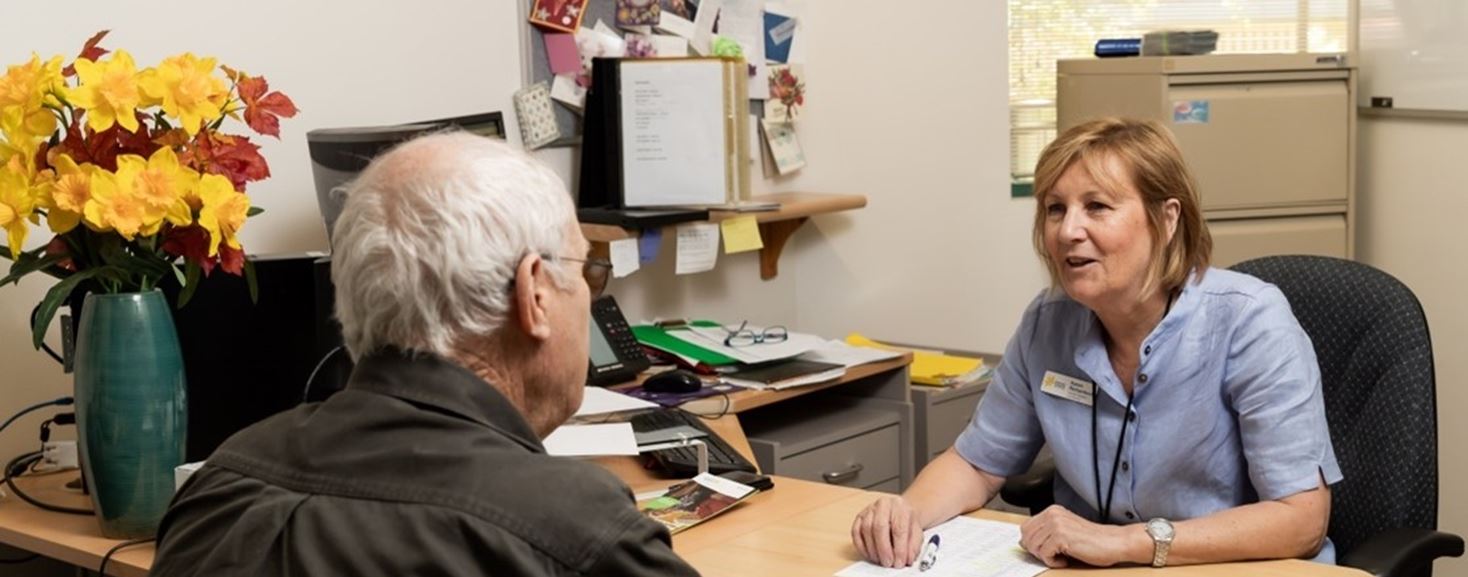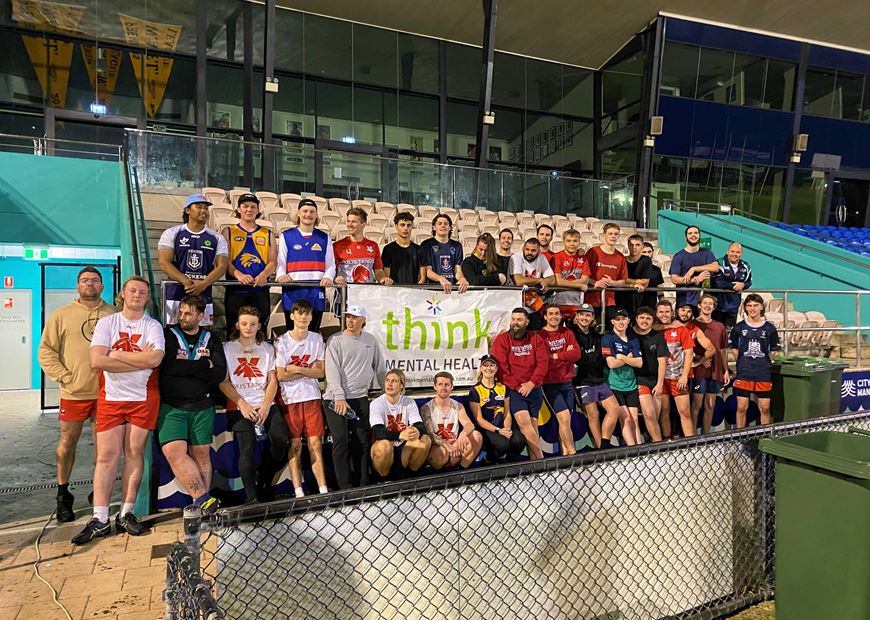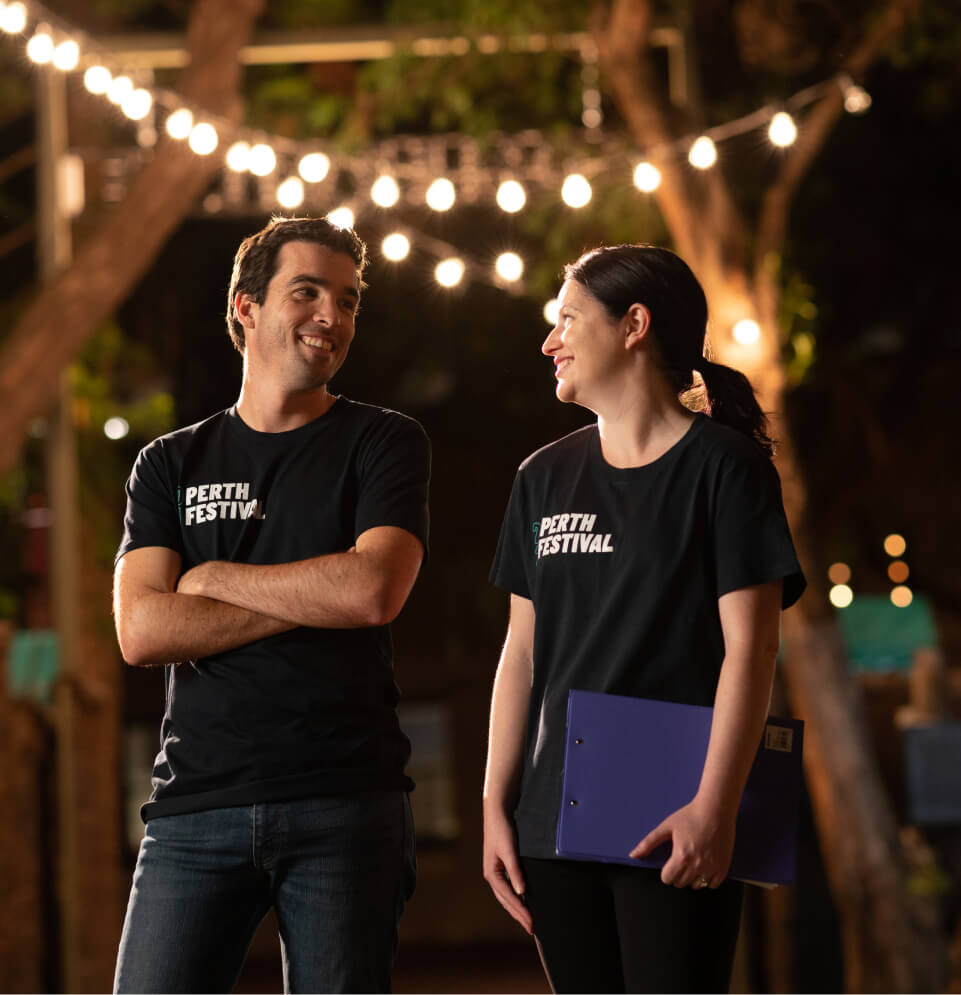Tackling smoking rates in disadvantaged communities
In 2018, the Make Smoking History Program received additional funding from Healthway to expand its reach within the community services sector to target populations that continue to smoke.
First established in May 2000, Cancer Council WA’s Make Smoking History Program (jointly funded by the Department of Health WA, Healthway and Cancer Council WA) aims to reduce the prevalence of smoking among Western Australian adults. The campaign works to influence public opinion and policy on key smoking and health issues, raise awareness of the harms of smoking and support smokers to reduce and quit by promoting evidence-based smoking cessation care and information.
The introduction of the Make Smoking History Priority Settings Program (formerly the Community Services Program) has been instrumental in expanding communication and advocacy activities, and raising awareness for the need to address smoking in priority population groups in the community.
To orient community services organisations in the delivery of projects to shift attitudes, knowledge, and behaviour around smoking.
Cancer Council
12/31/2019
$399,928
Healthway
$354,928
State-wide
General Community
- During the funding period, 36 sites across 20 organisations participating in the program. This included 427 staff and an estimated 9,219 clients.
- Built confidence and capacity in staff in how to address smoking and provide smoking cessation support for clients.
- Key to the program’s success has been building and maintaining trusted long-term relationships to support organisations to commit to addressing tobacco related inequities.
- The approach is tailored to each community, health, and corrective service provider to develop organisation-wide strategies to address tobacco use with the support of Make Smoking History.
- Most community, health and corrective services have competing demands and priorities, with limited capacity to consistently address tobacco use.
- Values-based messaging, support from leadership and flexible project design are strategies the team have found can encourage consistent engagement.

Opportunity
The prevalence of current smokers in Western Australia has halved from 21.8% in 2002 to 10.4% in 2020 [3], however, continues to be high in at-risk populations including Aboriginal and Torres Strait Islander people, those experiencing homelessness, prison populations and people with mental health conditions.
Australian adults who reported having been diagnosed or treated for mental health conditions in the past year were twice as likely to be current smokers than those not diagnosed or treated in the past year [1].
People experiencing homelessness smoke tobacco at disproportionately high levels compared with those within stable housing. In 2016, of the 1,374 Homeless Healthcare patients who had their smoking status recorded, the vast majority were daily smokers (81%), with 9% having previously smoked [6].
In 2018–19, 38% of the Aboriginal and Torres Strait Islander population aged 15 years and over were daily smokers [3]. Research also shows the smoking rate among people who inject illicit drugs is high, at 89% [5].
In 2018 roughly 75% of Australians in prison were current smokers, with one in 14 taking up smoking while incarcerated [1].
While population-level strategies such as public education campaigns and increasing tobacco taxes have been instrumental in reducing smoking rates in at-risk groups, it is well documented that people experiencing disadvantage require additional support to quit. Research also finds that people want to reduce and quit smoking regardless of their socioeconomic circumstances [2].
38%
of the Aboriginal and Torres Strait Islander population aged 15 years and over were daily smokers in 2018–19 [3]
75%
of Australians in prison were current smokers in 2018 with 1 in 14 taking up smoking while incarcerated [1]
81%
of Homeless Healthcare patients were daily smokers in 2016 [4]
Through the Priority Settings Program, Cancer Council WA has partnered with community, health, and corrective services to provide consistent support to address tobacco use and aims to:
- Provide everyone at the service with access to evidence-based quit smoking information and support;
- Increase smoke-free areas at the service; and
- Address barriers to addressing clients’ tobacco use by building staff capacity at participating services.
Approach
Cancer Council WA developed the free Make Smoking History Priority Settings Program to help community, health, and corrective services deliver projects at their service to shift attitudes, knowledge, and behaviour of staff and clients around smoking. Supported by a team of five staff members (including two Healthway-funded staff members appointed in 2018), the program focusses on six outcomes:
- Implement and promote a comprehensive tobacco policy.
- Promote a smoke-free culture.
- Expand smoke-free environments.
- Build the capacity and confidence of staff to address smoking.
- Embed evidence-based quit smoking support into processes and procedures.
- Monitor and evaluate quit smoking support.
In addition to supporting community, health, and corrective services Cancer Council WA also:
- Partners with peak bodies to deliver professional development events to raise awareness of tobacco related issues.
- Raises awareness of the importance of working together to address tobacco use within the community service sector.
- Delivers smoking cessation brief advice training within community, health and corrective services, including online training adapted from Quit Victoria and face-to-face training.
- Works closely to upskill and build the capacity of Cancer Council WA Regional Education Officers (REOs) and WA Country Health Service (WACHS) Health Promotion staff through face-to-face and videoconference training to extend the reach across WA, with the commitment for them to lead a Make Smoking History project with at least one community, health or corrective service in their region.
- Established a ‘Make Smoking History – Community Service Organisation Implementation Network’ group consisting of Cancer Council WA REOs and WACHS staff who meet on a quarterly basis to discuss projects and share learnings.
- Identified opportunities through a formal needs assessment to work with community services to improve healthy food policies and practices. Delivered in partnership with the LiveLighter team at Cancer Council WA, a pilot project was implemented at Vinnies Mental Health Service. Plans are underway to create resources for other community services.
![MSH Education And Training Coordinator Doris Neuwerth[1]](/media/fpebkyar/msh_education_and_training_coordinator_doris_neuwerth-1.jpg?anchor=center&mode=crop&width=1468&height=577&rnd=133039285708630000&quality=80)
Impact and outcomes
During the funding period, 36 sites across 20 organisations participated in the program. This included 427 staff and 9,219 clients, as estimated by operational staff.
36
sites
20
organisations
427
staff
One of the barriers to staff addressing clients’ tobacco use was their perception that it was not their role to talk about tobacco with clients. However, the training sessions offered through the Make Smoking History projects are changing the staff attitudes and building their capacity and confidence to address smoking. Participants were asked to indicate their level of agreement with statements relating to their skills, knowledge, and attitudes towards providing smoking cessation support before and after the sessions. Pre and post evaluation data from 73 participants at six community service organisations show increases in all areas.
What worked
Building and maintaining trusted long-term relationships to support organisations to commit to addressing tobacco related inequities has been key to the program’s success.
Over the last few years, the program has focused on having a presence at events and activities, and ongoing communication with key stakeholders across community, health, and corrective services. This ensures tobacco control is seen as a priority and engages organisations with the Make Smoking History program. Through these partnerships, the Make Smoking History team is continually adapting the program to suit relevant organisations.
Services design their own solutions to address tobacco use with the support of Make Smoking History.
The Make Smoking History team tailors their approach to each community, health, and corrective service provider to develop organisation-wide strategies that meet the three key principles of sustainability, accessibility, and impact. The project is led by the service – every service co-designs a project plan with staff, volunteers, and clients, and in collaboration with Make Smoking History, ensures each strategy adheres to the three principles. If a strategy is not deemed to be sustainable into the future, it will not be implemented. An example of an organisation that has implemented a Make Smoking History project can be found here.
Key challenges
Organisations often have competing demands and limited resources. Values-based messaging (messages that motivate concern and action), support from leadership, and flexible project design can encourage consistent engagement.
Over the years, the program has struggled with maintaining ongoing consistent engagement with some organisations involved in a Make Smoking History project. Most community, health and corrective services have competing demands and priorities and are often limited in their capacity to consistently address tobacco use. Several strategies have been adopted to overcome this challenge:
- The Make Smoking History program and resources are continually reviewed to adapt to the needs of an organisation, ensuring best practice smoking cessation care is available, and the strategies are suitable for staff and clients. Ongoing assistance is provided to organisations and projects are flexible and implemented at a pace and capacity that is suitable for each organisation.
- Language is key. Values-based messaging is clear, and the easy-to-follow guidelines engages community, health, and corrective services.
REFERENCES
- Epidemiology Directorate, Health and Wellbeing of Adults in Western Australia 2020, Overview and Trends. 2021, Epidemiology Directorate.
- Greenhalgh, E., M. Scollo, and M. Pearce, 9.5 Smoking and intergenerational poverty, in Tobacco in Australia: Facts & issues, E. Greenhalgh, M. Scollo, and M. Winstanley, Editors. 2020, Cancer Council Victoria: Melbourne.
- Greenhalgh, E., et al., 7.19 Interventions for particular groups, in Tobacco in Australia: Facts & issues, E. Greenhalgh, M. Scollo, and M. Winstanley, Editors. 2021, Cancer Council Victoria: Melbourne.
- Wood, L., et al., Tackling health disparities among people experiencing homelessness–the impact of homeless healthcare. Perth, Western Australia: School of Popualtion and Global Health, The University of Western Australia, 2018.
- Australian Institute of Health and Welfare, National Drug Strategy Household Survey 2019. 2020, AIHW: Canberra.
- Peacock, A., et al., Australian Drug Trends 2020: Key Findings from the National Illicit Drug Reporting System (IDRS) Interviews. 2021, National Drug and Alcohol Research Centre, UNSW Sydney: Sydney.
- Biagioni, N. and S. Pettigrew, Smoking behaviours of clients accessing community service organisations: pilot study results. . 2016, Curtin University Perth.
Acknowledgement of Country
The Western Australian Community Impact Hub acknowledges and pays respect to the Traditional Owners of the land on which we are based, the Whadjuk people of the Noongar Nation and extends that respect to all the Traditional Owners and Elders of this country. We recognise the significant importance of their cultural heritage, values and beliefs and how these contribute to the positive health and wellbeing of the whole community.






